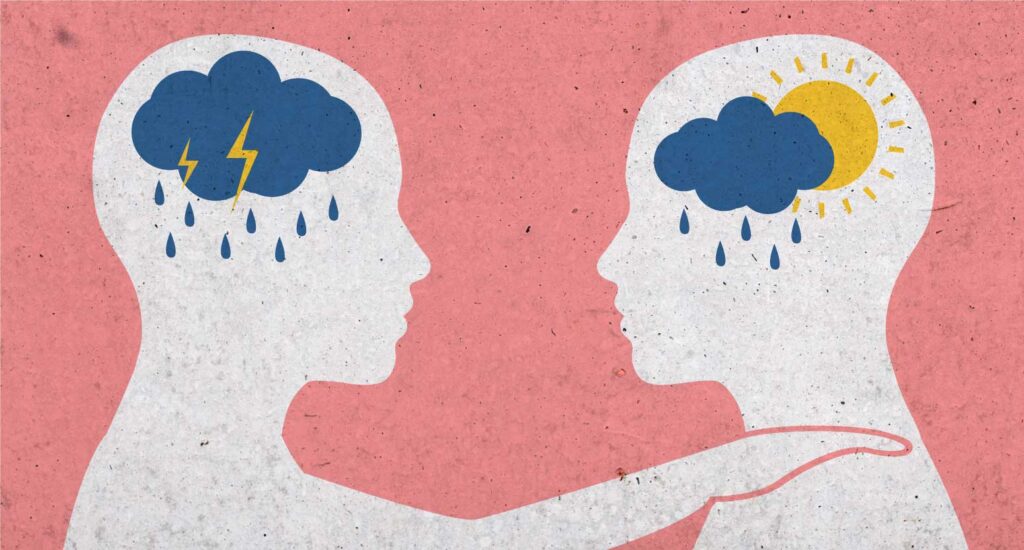5 Signs You’ve Been Mentally Abused (And Don’t Know It)

When you think of abuse, what comes to mind? Physical abuse is usually the first thought, but not all abuse is physical. Mental abuse is a form of manipulation and control, intended to undermine one’s self-esteem and make them feel isolated. Cinderella is an example of a victim of mental abuse. Isolated by her stepsisters and stepmother and forced to do their bidding, Cinderella found no hope, even within her own family.
The most difficult part about mental abuse is that it can go on for a long period of time. Because of the lack of physical indications, intervention is much less likely to occur. According to Sharie Stines, PsyD, “emotional abuse goes undetected, minimized, and dismissed by the abuser, victims, and others.”
Not only this, but mentally abused people are likely to put themselves in additional abusive situations. According to counselor Andrea Matthews, those exposed to mental abuse in their childhood may accept abusive behavior as something normal, and be prone to entering abusive relationships without even realizing that the abuse they endure is very wrong (Matthews, 2019). Knowing whether you are a victim of mental abuse is a first step to helping yourself identify the people around you in your past or in the present who might be your abusers. This is especially important as mental abuse can take a toll on one’s mental and physical health.
With that, here are 5 signs that you’ve been mentally abused and don’t know it.
Number 1: You have poor empathy.
In 2017, a group of researchers from the University of Berlin found that early life stress, such as emotional neglect and mental abuse, may cause genetic changes to the hippocampus which can make it more difficult to empathize with others’ emotions (Grimm et. al, 2017). Since the hippocampus is involved with unconscious processing of relational information, it is a central structure for emotional empathy experiences.
Let’s say a friend is really upset because their pet just passed. If your hippocampus is fully operational, you may say something like: “Oh, I’m so sorry. I can’t even imagine how you feel.” You’re letting your friend know you understand how they feel and you’re there for them. If you’re a victim of mental abuse, you may say something nice because you know you should, make an inappropriate comment, or might not say anything at all. Now, if you’ve never experienced a pet passing away, you may not be able to relate, and that’s okay! But, if you find it hard to empathize with someone’s feelings, this could be a sign of past mental abuse.

Number 2: Low self esteem.
Do you find it hard to boost your self-confidence and always doubt yourself? If you have been subject to mental abuse, you have consistently been put down which contributed to a negative self-image. A study on self esteem in adolescents by researchers from the Hubert Kairuki Memorial University found that psychological maltreatment and self esteem are negatively correlated (Mwakanyamale and Yizhen, 2019).
This study also found that victims of mental abuse tend to believe that they have little or no value to those around them… or even the world. They may also think that the world is unsafe and believe many others will abuse them, as well. If you’re someone who usually thinks lower of yourself, think back. Did you have someone around that constantly put you down? You may be a victim of mental abuse.
Number 3: You’re a people pleaser.
When someone cares about you in any capacity, they don’t want to see you upset or controlled. According to psychologist Jay Reid, self-absorbed caregivers may be a root of why one might need to please others. The mental abuse they give might make you believe that others’ needs come before your own. They want you to believe you’re lesser than, so you’re always trying to do more to gain their approval.
Do you find yourself needing to be “perfect” for others in every way, to be accepted and loved? Let’s say there’s one cookie left in the pack. Your mental abuser comes in and says, “You gonna eat that?” You could say no so that they can eat it, which may make them happy so they do not respond rudely to you. If you say yes, you might get told, “how inconsiderate or rude!” That urge to please others can be another sign of mental abuse.

Number 4: You frequently doubt yourself.
When you say or do something, how confident are you that you’re correct? We can’t be right all of the time, but mental abuse can cause you to question your sanity and sense of reality. We know this as gaslighting. According to Andrea Matthews (LPC, NCC) Gaslighting is a main form of control for abusers because it can deflect blame and cause one to believe that they are at fault (Matthews, 2019). If you’ve been frequently gaslit in the past, you might have low confidence in your abilities, and subject yourself to a lot of self-doubt. You might also not trust yourself or your instincts, as a result of being in a mentally abusive situation (Pietrangelo, 2019).
Number 5: You feel chronically fatigued.
Do you find yourself feeling exhausted, almost all the time? Now, I don’t mean tired like “I need a cup of coffee to wake me up.” I mean actual fatigue where, if you lied down, you would actually pass out. While one might not expect that mental abuse can affect and drain someone physically, it certainly can.
A study from KU Leuven in 2001 found a correlation between people who have experienced childhood emotional abuse and neglect and having Chronic Fatigue Syndrome or Fibromyalgia during adulthood (Houdenhove et. al, 2001). Mental abuse, they found, may increase vulnerability to Chronic Fatigue Syndrome and Fibromyalgia due to altered pain perception and “the burden of an overactive lifestyle that has to regulate inner tension and compensate for low self-esteem.” If you have chronic fatigue or pain and have been seen by a medical professional, there is a possibility that you’ve been mentally abused.

Final thoughts
Mental abusers may not leave a scar, a bruise, or a physical marker that they’ve done damage. This is why it can be so difficult to identify and handle mental abuse until it’s serious. These aren’t the only effects of mental abuse, but they are some of the more common ones when exposed to mental abuse for long periods of time. As always, we recommend reaching out to a mental health professional if you’ve experienced abuse in any form. Thanks for reading!
References:
- Boudewijn Van Houdenhove, Eddy Neerinckx, Roeland Lysens, Hans Vertommen, Liesbet Van Houdenhove, Patrick Onghena, René Westhovens, Marie-Beatrice D’Hooghe, Victimization in Chronic Fatigue Syndrome and Fibromyalgia in Tertiary Care: A Controlled Study on Prevalence and Characteristics, Psychosomatics, Volume 42, Issue 1, 2001, Pages 21-28, ISSN 0033-3182, https://doi.org/10.1176/appi.psy.42.1.21.
- Grimm, S., Wirth, K., Fan, Y., Weigand, A., Gärtner, M., Feeser, M., Dziobek, I., Bajbouj, M., & Aust, S. (2017). The interaction of corticotropin-releasing hormone receptor gene and early life stress on emotional empathy. Behavioural brain research, 329, 180–185. https://doi.org/10.1016/j.bbr.2017.04.047
- Matthews, A. (2019, September 4). The Effects of Emotional Abuse. Psychology Today. https://www.psychologytoday.com/us/blog/traversing-the-inner-terrain/201909/the-effects-emotional-abuse
- Mwakanyamale, A.A., Yizhen, Y. Psychological maltreatment and its relationship with self-esteem and psychological stress among adolescents in Tanzania: a community based, cross-sectional study. BMC Psychiatry 19, 176 (2019). https://doi.org/10.1186/s12888-019-2139-y
- Pietrangelo, A. (2019, March 29). What Are the Short- and Long-Term Effects of Emotional Abuse? Healthline. https://www.healthline.com/health/mental-health/effects-of-emotional-abuse


Responses